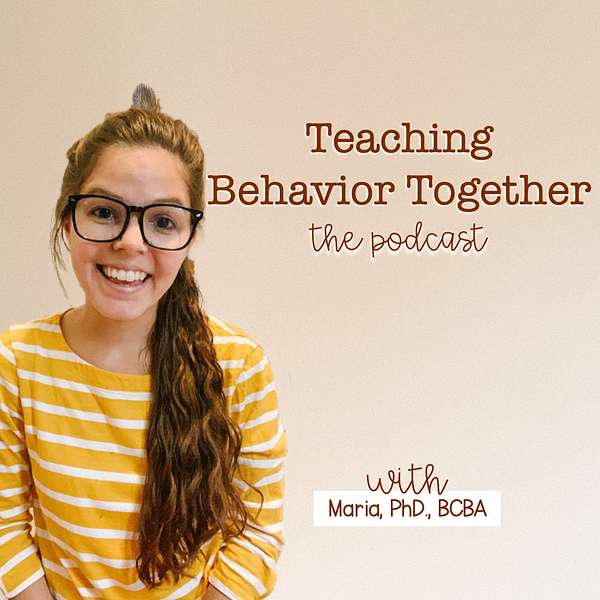
The Teaching Behavior Together Podcast
The Teaching Behavior Together Podcast
Strategies for Work Refusal Behaviors
Work refusal behaviors can be challenging to intervene upon. There can be several different reasons why students might be refusing to complete work or avoiding work in general. With all behavioral interventions we want to focus on addressing the behavior across the antecedent, behavior teaching, and consequence domains.
Antecedent Strategies. First, we can modify the assignment or task based on the skill area. If this is an area of weakness we can modify the task so the student can be successful with the assignment. If this is an area of strength we can also modify it so the student can be engaged and successful with the assignment.
Modes of Completion. We can provide alternative assignments or alternative modes of completion. I often provide choices to students about how they want to complete the task. Can they record a response instead of writing out their answers? Can they answer all the questions on a white board and someone else transfer them to a hard copy? Can they work with a peer?
Breaking Down Tasks. Breaking down the task into micro steps or into a to do list format can be very helpful. This can give students clear steps for each aspect of the task. I try and make these steps as small as possible.
Behavioral Momentum. With this strategy, we start with tasks we know the student can complete and then move onto more challenging tasks. This builds momentum towards the behavior we want to see by building on success. For example, say you are doing a math activity, I might start with problems the student has already completed successfully before moving onto more challenging or new problems.
Choices. I challenge us to go beyond the do you want to write with a pencil or pen choice and move into meaningful choices. For example, do you want to complete the task alone or with a partner? Would you like to complete 5 or 10 problems? Would you like me to write the sentence or would you like to write the sentence? These choices are more meaningful and can build stamina towards work completion.
Behavior Teaching Strategies. I would focus on skill building in areas of weakness if there are any. Small group tier 2 or intensive tier 3 interventions should be provided for students struggling with a content area. Executive functioning plays a large part in work completion, therefore building all skills related to executive functioning is also a great idea.
Consequence Strategies. If students are completing work and task that they previously refused I usually would default to providing students with some sort of break. Therefore, they were engaging in other behaviors before that allowed them to escape a task, now they are engaging in work and we are reinforcing that with a break. We are now building the contingency of I complete work I get a break instead of I engage in behaviors and escape the task. The student can engage in preferred activities during their break.
We have to recognize that we cannot force a student to engage with a task, in fact we cannot force them to do anything. Therefore, the most important thing to focus on are the antecedent and behavior teaching strategies. These may take some time to work well, and we need to be patient. What I always hesitate to do is take something away. Often if a student is not engaging in a task they need support with skills as opposed to take something like recess or choice time away.
Again, strategies for work refusal behaviors can be complex, and often times we need to attempt several of these strategies in combination to maximize student success.
Resources Discussed in this Episode
Free Behavior Intervention Guide
Follow me on Instagram